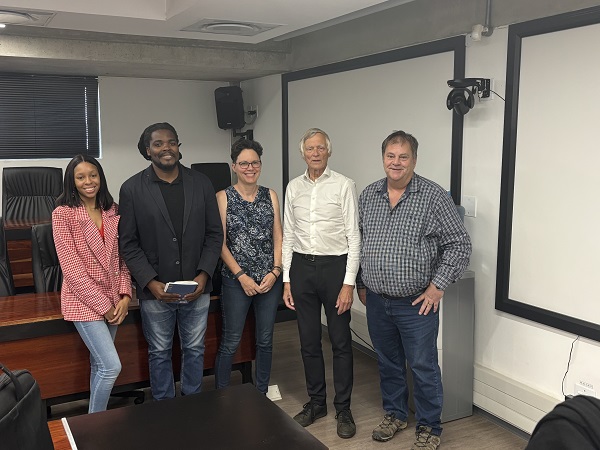Professor Ype Poortinga, emeritus professor at Tilburg University and the University of Leuven, delivered an insightful lecture at the Optentia Research Unit at the Vanderbijlpark Campus. His talk, titled “Exploring the History of Cross-Cultural Psychology: The Primacy of Method over Theory,” explored the evolution of research methods in cross-cultural psychology, emphasising their importance in understanding differences and similarities in behaviour.
A leading expert in the field, Professor Poortinga highlighted how advancements in research methodology have allowed for a deeper understanding of the vast behavioural differences between populations over the past 50 years. However, he cautioned that cross-cultural psychology should shift its focus from merely identifying differences to exploring the commonalities that unite people worldwide.
“We’ve made great strides in understanding how populations vary, but we must also remember that we are all part of the same global community,” said Prof. Poortinga. He referred to the United Nations' Sustainable Development Goals as a framework to address global challenges like inequality, poverty, and environmental sustainability. He called for cross-cultural psychology to prioritise these shared concerns, framing them as issues faced by “villagers in the global village.”
Central to his lecture was the idea that identity is at the heart of cross-cultural psychological research. Prof. Poortinga argued that understanding how individuals perceive themselves and their place in the world offers more meaningful insights than merely observing differences in behaviour. He emphasised that cross-cultural psychology should focus on observable conventions and practices that guide people's lives across diverse contexts.
In discussing the future of the field, Poortinga urged for more rigorous study designs that ensure valid and meaningful comparisons. He explained that many perceived psychological differences between populations, such as countries, often diminish when research methodologies are refined, stressing the importance of construct equivalence and addressing biases in research.
Professor Poortinga's lecture underscored the importance of embracing both diversity and shared humanity. By focusing on global interconnectedness and pressing challenges, he advocates for a collaborative approach in cross-cultural research—one that aims to build bridges rather than highlight differences. His insights provide a roadmap for cross-cultural psychology to contribute to a more unified and sustainable world.

Ms Kele Ramagaga, Prof Blessed Ngwenya, Ms Elizabeth Kriel, Prof Ype Poortinga and Prof Ian Rothmann
